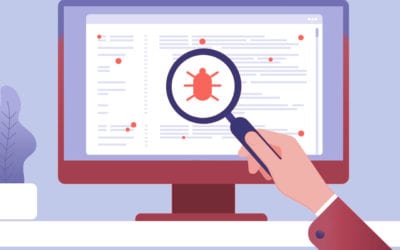If you feel like your email box has been bombarded with unsolicited offers and charity appeals this holiday season, it’s not your imagination. The holiday season is prime hunting for hackers, and they’re sending out scam emails of all kinds.
You’re getting what’s commonly referred to as a “phishing email.” Phishing is what scammers do to draw you in with online hoaxes, fake charities, one-time offers, and more. What they all have in common is an emotional appeal or limited-time offer that’s designed to catch you off guard.
These emails are far from harmless. They can convince you to reply and give up personal information. Or, just as bad, they may contain links that when clicked, unleash malware into your systems. Before you click on that “unbelievably good holiday deal” you received in an email stop, look, and listen.
How To Spot a Scam Email
If you receive an email warning you about a suspended account, suspicious activity on an account, or threatening any action if you do not respond, STOP and think before you open it. Here are some common scam email tactics:
- False urgency, threatening language, account warnings, or fake activity reports like “click here to track the package on your recent order.” If the message is coming from a company you do business with, go to their website, find a service number, and call it to verify the message.
- Overly generic greetings or poor grammar, coming from unknown senders or spoofed domains (ie. Amezon.com)
- Emails from companies you don’t know. You can’t verify a company from an email, and it’s too dangerous to click the link housed inside. Remember, legitimate companies generally won’t send you emails unless you’ve opted in to their messages.
- Sales that are too good to be true or knock-off products that are “better than the original.”
If you see any of these tactics, just hit delete, and empty out your online trash can. And if you receive any email that gives you a gut feeling that something is off, don’t question it.
How to Stay on the Nice List: Don’t Get Hooked by Phishing Emails
Spotting scam emails is easy when you know what to look for. When in doubt, however, never hesitate to validate the source of the message.
- Never respond to a link directly in an email. Look up the URL directly in the web browser, so you can see where it came from.
- Remember that legitimate companies you do business with will not send threatening emails to customers.
- Ads from companies will already be fully designed and downloaded into your email. If you’ve gotten an email from a favorite store that asks you to download an attachment, it’s a scam.
- Scams overpromise. If it sounds too good to be true, it is.
- Make sure your business uses antispam and email filtering programs, and train your employees in cybersecurity best practices, so they can avoid scam emails.
Let Integris Keep Your Employees on the Nice List
Integris can provide the tools your business needs to protect itself from cybercrime, including email filtering and anti-spam protections. In addition, our cybersecurity awareness training classes will keep your employees off the naughty list and our phishing simulations will keep your hard-working elves on their toes.
If you’d like some free educational materials on the subject, take a look at our comprehensive Cybersecurity Essentials Kit.
Ready to learn more? Contact us for your free, no-obligation consultation. As a special holiday gift, Integris is offering a free dark web scan to all qualified businesses to make sure you avoid the ultimate naughty list: a dark web data leak. Start the New Year off the right way with our free consultation and dark web scan. Schedule yours today.



